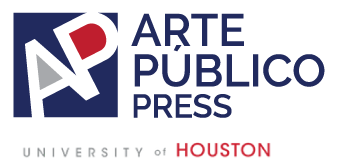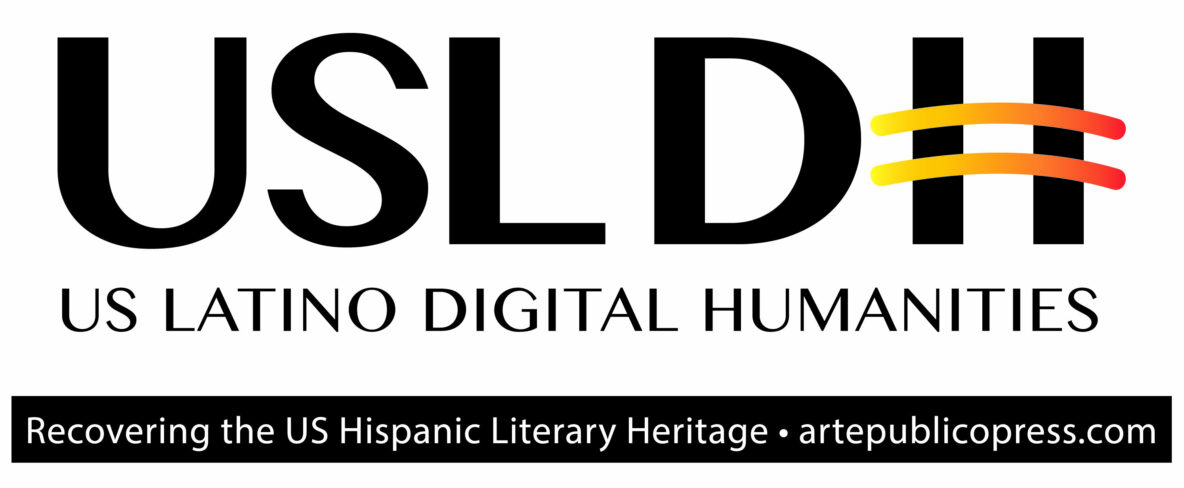The University of Houston US Latino Digital Humanities (USLDH) program is a digital scholarship/research undertaking to provide training and research on US Latino recovered materials. The Andrew W. Mellon-funded USLDH Grants-in-Aid program is designed to provide a stipend to scholars for research and development of digital scholarship in the form of a digital publication and/or a digital project.
Visit the call for the 2021-2022 round of Grants-in-Aid on our website: http://artepublicopress.com/recovery-program/grantsinaid/
The Enriqueta Vásquez Digital History Project
Enriqueta Vásquez, a central figure in the Chicano Movement in New Mexico and other localities, contributed to the movement’s publication El Grito del Norte and served as a voice for land struggles, Indigenous rights and the preservation of cultural heritage. However, no major institution has collected her archive. The project seeks to gather and preserve her work and stories through a digital archive for sharing with the general public through the Chicana Por Mi Raza Digital Archive and US Latina/o Archive and Digital Humanities.

PI: Theresa J. Córdova, PhD
Visiting Scholar-In-Residence,
Center for Regional Studies;
Adjunct Faculty Member, Chican@ Studies
University of New Mexico
Fighting Fascist Spain: The Exhibit. Worker Antifascist Culture in US Spanish-language Periodicals
Fighting Fascist Spain: The Exhibit intends to recover, preserve, and make available worker antifascist visual culture. As physical objects, images in US Spanish-language periodicals are fragile. This digital collection will document otherwise disappearing memories of local and global networks of political protest and solidarity. Visual sources recovered in The Exhibit comprise but are not limited to:
- announcements and photographs of rallies and demonstrations, photographs and obituaries of demonstrators
- announcements of cultural fundraisers and the antifascist plays, photographs and obituaries of participants
- cartoons, photographs and obituaries of artists

PI: Montse Feu, PhD
Associate Professor, Department of World Languages and Cultures,
Sam Houston State University.
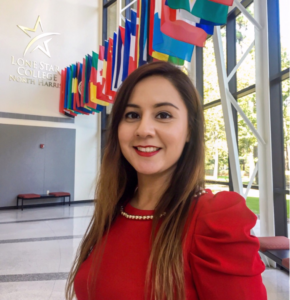
Technical Assistant:
Jenny Patlan, MA
Adjunct Professor,
Lone Star College-North Harris, Houston
Hispanic Feminism and Antifascism in La Voz (New York 1937-1939)
El primer número del periódico La voz se publicó en Nueva York en julio de 1937, estableciendo desde su editorial que se trataba de una empresa de intenciones democráticas. La existencia de un periódico publicado en español en esos años en Estados Unidos no es un hecho extraordinario pues la prensa periódica de habla hispana era común desde el siglo XIX en otras ciudades como Boston, Washington y Filadelfia, pero los años en que se publica La voz resultan particularmente significativos por corresponder con el conflicto civil español y el auge del fascismo en Europa. Los lectores de La voz eran precisamente la colonia antifascista que vivía en la zona de Nueva York: hispanxs y latinxs progresistas, emigrantes y exiliadxs. La voz es una publicación crucial para entender la oposición de lxs hispanxs y latinxs al fascismo en los años treinta. El periódico La voz no se encuentra digitalizado y hay pocas copias microfilmadas en Estados Unidos. Mi proyecto aspira a crear un archivo digital de artículos de opinión publicados en la “Página de la mujer”. Este archivo servirá como un repositorio y herramienta de trabajo para entender el papel de las mujeres en esa sociedad cambiante e inestable, su activismo intelectual y sus revolucionarios esfuerzos en la lucha contra el fascismo. Este proyecto aspira a digitalizar los textos y hacerlos de libre acceso, recuperando los artículos de periodistas y activistas hispanas y latinas que publicaron en sus páginas durante esos años. Su trabajo intelectual sirve de base para el estudio de las fuertes conexiones entre feminismo y antifascismo que los artículos de La voz ponen de evidencia.

PI: Ana María Díaz-Marcos, PhD
Professor of Spanish
Department of Literatures, Cultures and Languages
University of Connecticut
Modesta Avila: Obstructing Development Since 1889 (MAOD)
#MAOD1889 is defined as the Modesta Avila: Obstructing Development Since 1889 multimedia, digital-arts project. Modesta Avila is considered to be a folk heroine of Mexican/Mexican American folks. There are various versions of Modesta Avila's life and the various actions she took in the late 1880s to keep the Santa Fe Railroad from developing on her family's land, which was located in in the same region of what is now the San Juan Capistrano Train Station. The project will trace and focus on Modesta Avila’s life via a virtual timeline, a research contribution to the Recovery Program via their Omeka site and augmented reality. #MAOD1889 builds movement culture by preserving and re-presenting history from a people of color (POC) point of view. Among academic documentation, #MAOD1889 cites relevant photos, historical documents, media publications and urban tales from the community and local POC artists who have focused on Modesta Avila’s mugshot image to produce contemporary work. The archives will be used to source an online and book publication as well as a live hologram presentation. Through the use of the digital humanities, #MAOD1889 will provide readers and researchers the opportunity to scan the images with their phones and witness Modesta Avila come to life to tell her own story.
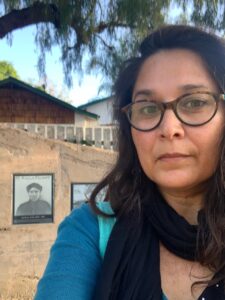
PI: Sarah Rafael García, MFA
Founder of Barrio Writers and LibroMobile

Research Coordinator:
Cecilia López
Undergraduate
University of California-Berkeley
The Puerto Rican Literature Project
The Puerto Rican Literature Project is a digital archive that maps the literary production of Puerto Rican writers from the archipelago and the diaspora since the Jones Act. It contains various photos, ephemera, and images of manuscripts in progress, some of which are housed at the archive at the Center for Puerto Rican Studies at Hunter College, where a portion of this project began at a summer fellowship. In addition, we are creating various free digital teaching aids that educators can use to teach Puerto Rican literature in the classroom. Finally, the project will feature a page documenting the work of contemporary Puerto Rican writers through interviews, scholarly essays, craft talks, and book reviews.

Co-PI: Claire Jiménez, MFA
Writer
PhD student,
University of Nebraska-Lincoln

Co-PI: Raquel Salas Rivera, PhD
Poet, translator & editor
University of Puerto Rico
2018-2019 Poet Laureate of Philadelphia

Co-PI: Ricardo Maldonado, MFA
Managing Director
92Y's Unterberg Poetry Center
Recovering Barrio Rhetorics: A Discursive and Historical Remembering of Chicana Border Writer Ramona González
This project emphasizes the recovery of Ramírez’s maternal abuela’s writings. Her abuela, doña Ramona González, was born in El Paso, Texas in 1906 and wrote short stories, poems, fables, dichos, and more in 1960 – 1975. As an early Chicana writer, she published some of her writings in the important Chicano literary journal of El Grito’s (1967-1974) special issue Chicanas en la literatura y el arte of 1973. This project, however, focuses on doña Ramona’s seven hundred and fifty plus primary documents that she produced over her lifetime. Five years ago, the González/Hernández family (Ramírez’s immediate family) uncovered these documents tucked away in a cardboard box. These documents have now all been digitized, and a large majority have been translated by Dr. Ramírez’s father, Dr. Neil J. Devereaux. This project’s main goal is community accessibility of these primary document to the greater Latinx community.

PI: Cristina Ramírez, PhD
Associate Professor,
Director of the Rhetoric, Composition, and Teaching of English program
University of Arizona

Research Assistant:
Teresa McKinney Davis
Instructional Designer,
Digital Learning
University of Arizona
Unearthing Brazilian, Cuban, and Puerto Rican Abolitionism in 19th Century US Press
This project understands 19th-century Latino publications from immigrant editors of Brazil, Cuba, and Puerto Rico as fundamentally transnational phenomena engaged in the larger press networks of the Americas. The interactions between these three communities in the US often occurred in exchanges that have been lost or erased from the historical record despite their relevance to understanding how race and nationhood came to be understood locally and across national borders. By locating and digitizing reprinted articles from Latino periodicals, I am addressing the gaps in research and representation by digitally reconstructing the networks of Latino newspapers and the routes that their articles traveled.
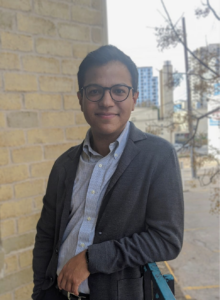
PI: Joshua Ortiz Baco, MA
PhD Candidate,
Department of Spanish and Portuguese,
University of Texas at Austin




